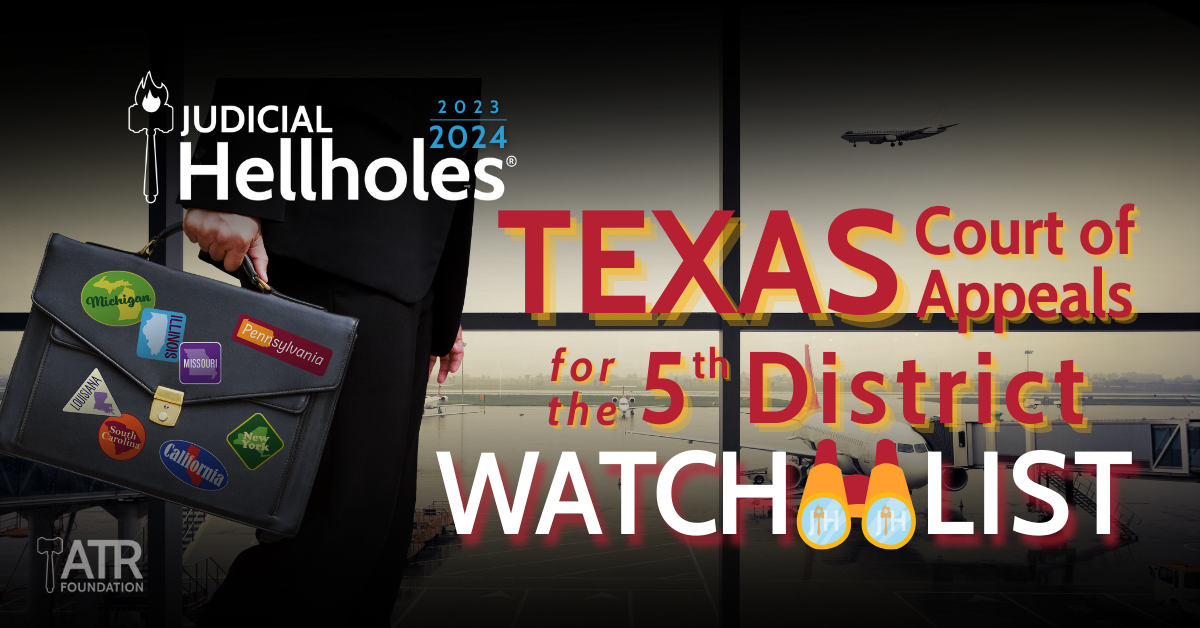Yet Another Fifth Court Decision to be Reviewed by Texas Supreme Court
The Texas Supreme Court has an opportunity to once again rein in liability expansion by the Texas Court of Appeals for the Fifth District (otherwise known as the Fifth Court). In late February, the high court will hear oral arguments in Parks v. Ford, a seemingly straightforward case involving the state’s statute of repose.
The Fifth Court, a Judicial Hellholes® Watch List jurisdiction, has maintained its plaintiff-friendly reputation in the state due to a series of liability expanding decisions and the court’s failure to adhere to Texas Supreme Court precedent.
While, fortunately, the Texas Supreme Court has been willing to address these erroneous decisions in the past, the Fifth Court’s repeated history of mistakes has the practical effect of imposing unnecessary delays and costs for litigants.
In this case, Ford sought to dismiss a products liability action that had been brought outside the state’s statute of repose, which requires actions of this kind to be brought within 15 years of the product’s sale. Ford defined the date of “sale” as the day the vehicle was released to the dealership which, in this case, fell outside the statutory period. This argument prevailed in a 2021 case before the U.S. Court of Appeals for the Fifth Circuit in a case that arose under similar circumstances.
The Fifth Court disagreed, finding the factual record unclear as to whether a vehicle is “sold” when it is released to the dealership or when final payment from the dealership is received by the manufacturer. Even though the title to the vehicle transferred on the day the vehicle was released, the Court determined that Ford was required to provide evidence that full payment was received outside the statutory period to dismiss the suit.
The public policy behind the statute of repose is if there is a defect in the design or manufacturing of a product then it should be revealed within fifteen years of the time of sale. After that time, a problem with the product is more likely to result from ordinary wear and tear, than a defect. A statute of repose eliminates the threat of never-ending liability for manufacturers of products that may be used for many years. The Fifth Court’s strained interpretation of the time of sale detracts from the statute of repose’s usefulness as a resource for manufacturers to dispense with cases like these without engaging in costly trials.
Last week, ATRA filed an amicus brief urging the Court to rule that Ford Motor Company’s “release” of a vehicle constitutes a “sale” under the plain text of the statute of repose. A “sale” is the transfer of property from one party to another for a price. The statute of repose does not require a defendant to prove the exact date of sale necessarily occurred outside the 15-year period. Adopting respondents’ misreading of the statute of repose would defeat the entire purpose of providing predictability.







